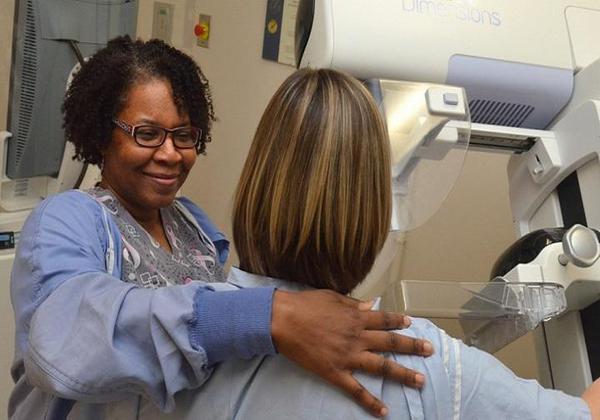
OK, now that you've calmed down some from the initial excitement, wiped out the pregnancy shelf at your local bookstore, and made a down payment on a new maternity wardrobe, it's time to focus on the most important thing here (and no, it's not the wallpaper pattern for the nursery): your health and the baby's health. Your first assignment:
Pick up the phone and call your doctor, nurse practitioner, or midwife—whomever you plan to see throughout your pregnancy and delivery—and make an appointment. It's time to begin prenatal care.
Studies find that babies of mothers who don't get prenatal care are three times more likely to have a low birth weight and five times more likely to die than babies born to mothers who do get care. Need any better reason?
The First Visit and Beyond
In a normal pregnancy, you will see your health care professional every month until about the sixth month; then every two weeks during the seventh and eighth months, and then weekly until labor.
During the first visit, your health care professional will take a full health history, including a history of any previous pregnancies. You will also receive a full physical exam, including a pelvic exam and Pap test in most cases, and will be weighed and measured and have your blood pressure taken. Your health care provider should also test for any sexually transmitted infections. You will get a due date, officially called the "estimated date of delivery," typically 266 days from the first day of your last period if you have regular menstrual cycles. Otherwise it is customary to assign the due date based on ultrasound.
During every future visit, you will be weighed, have your belly measured and blood pressure taken, have your urine tested for protein or sugar (signs of potential complications), and, most exciting, hear your baby's heart beat.
Prenatal Tests
Near the end of your first trimester and early in the second trimester, your health care professional will talk with you about a variety of prenatal tests to assess the health of the fetus. It's up to you which ones you have done. For instance, if you have no intention of terminating the pregnancy if the tests do find a problem, you may want to skip them. However, even then, you may want to have the test so you can prepare yourself emotionally for the possibility of having a special-needs child.
Who and When to Tell
Although you may want to send an e-mail to everyone in your address book, post to your Facebook account and shout your pregnancy from the proverbial rooftops, we urge you to relax and take a deep breath.
The first three months are the most common time for miscarriage; so give the baby time to get settled. Plus, you need time to adjust to the news, to discuss options with your partner (Keep working? Work part-time? Quit your job?) and decide how to break the news to your employer, if you're employed.
If you work for a company that employs 50 or more people for at least 20 weeks a year, you are covered by the Family and Medical Leave Act. The act requires that your employer provide up to 12 weeks of unpaid leave during any 12-month period for the birth and care of a newborn child. When you return, you are entitled to your same job or the equivalent.
In addition, most states require that employers offer the same disability leave (and pay) to pregnant women as to employees with other medical conditions that interfere with their ability to work. Thus, many women find that their first six weeks of leave are often paid.
However, every company is different. The only way to know what goes on in your company is to talk to your human resource department or your manager/employer—after your first trimester.
Most morning sickness disappears by the end of the first trimester. Until then:
Eat small meals throughout the day so you're never too full or too hungry.
-Avoid rich, spicy, greasy or fatty foods, and foods whose smells bother you.
-Eat more carbohydrates (plain baked potato, white rice or dry toast).
-Eat bland foods when you feel nauseous (saltine crackers, gelatin desserts, popsicles, chicken broth, ginger ale and pretzels). Keep some crackers by your bed and eat one before you get up.
-Use acupressure wristbands.
-Take additional vitamin B6 (25 mg three times a day), which some studies find can help with nausea.
-If your prenatal vitamins make your nausea worse, talk to your health care provider about prescribing a vitamin without iron.







